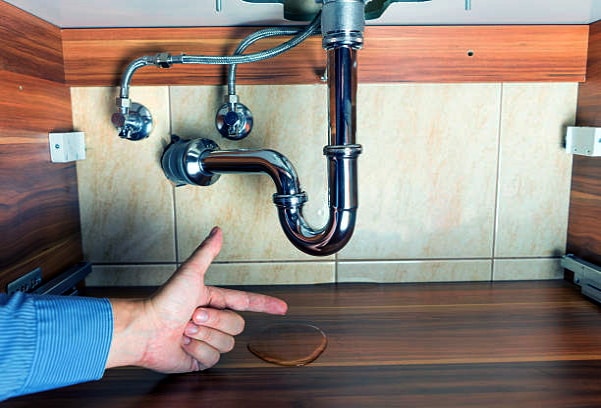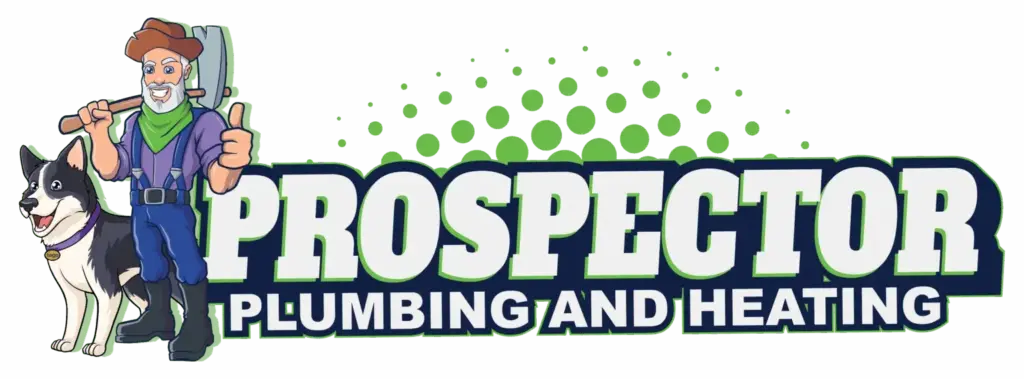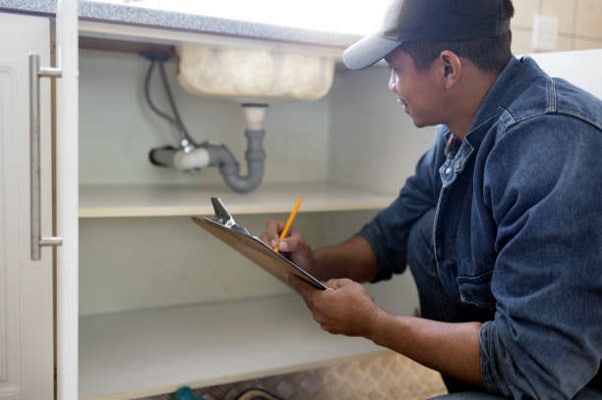Regular plumbing inspections are crucial for maintaining a smoothly running plumbing system and preventing property damage and health hazards. These inspections help improve water flow, maintain indoor air quality, extend the lifespan of fixtures, reduce the risk of emergencies, minimize costly repairs, and enhance overall system efficiency. It’s recommended to schedule annual plumbing inspections to ensure the optimal functioning of your home’s plumbing systems.
Benefits of Regular Plumbing Inspections
Regular plumbing inspections might not seem very exciting, but they’re incredibly important for keeping your home in top condition. Think of it as giving your plumbing system a check-up, just like you would go to the doctor for a check-up. When you inspect your plumbing, you can catch small problems before they become big, expensive problems.
One of the key benefits of regular plumbing inspections is improved water flow and improved water quality. Over time, mineral deposits, sediment, and other build-ups can accumulate in your pipes. This can reduce water pressure and lead to clogs that affect water quality. By having your plumbing system inspected regularly, you can identify and address these issues before they cause major problems.
Additionally, another advantage is the prolonged lifespan of fixtures. The wear and tear on fixtures like faucets, toilets, and showers can be gradual but significant over time. Routine inspections allow for early detection of any signs of deterioration, which enables timely repairs or replacements, thereby extending the life of these fixtures.
Preventing Emergencies and Costly Repairs
Regular maintenance is also key to reducing the risks of emergencies and costly repairs. Imagine waking up one day to find a burst pipe flooding your house. Not only will it cost a lot to fix it, but it’s also a huge inconvenience. By getting routine inspections, potential issues are identified early and resolved before they escalate into urgent situations.
For instance, during an inspection, a plumber might detect corrosion in your pipes that could lead to leaks or bursts; addressing this issue promptly could save you from the headache and expense of dealing with a flood later on.
Ensuring Optimal Efficiency and Reduced Water Bills
Let’s not forget about the money-saving aspect—regular inspections help minimize water bills through improved system efficiency. Plumbing systems that are well-maintained generally operate more efficiently than those that are neglected. Investing in regular inspections can lead to long-term cost savings by ensuring your plumbing system operates at its best capacity.
It’s clear that neglecting regular plumbing inspections is not worth the risk—it can lead to structural damage to your home and pose health hazards. Consistent inspections are essential for maintaining a safe and efficient plumbing system while avoiding costly repairs in the future.
By staying ahead of potential issues with regular inspections, homeowners can ensure that their plumbing system remains efficient and problem-free.
Identifying and Addressing Issues Before They Become Major
Imagine a tiny leak in a pipe that goes undetected for months. Over time, that steady drip becomes a significant issue, causing water damage and creating an environment where harmful mold can thrive. A minor issue such as this, if ignored, can quickly escalate into costly repairs and potential health risks.
Regular plumbing inspections play an essential role in catching these small problems early. Trained professionals have the expertise to spot leaks, clogs, or signs of corrosion that might go unnoticed by the untrained eye. By doing so, they prevent these issues from snowballing into more significant and expensive repairs.
What to Look For During an Inspection
Leak Detection: Water stains or damp spots may indicate hidden leaks that could lead to significant water damage over time.
Clog Identification: Slow draining sinks, toilets, or showers can be a sign of developing clogs in the plumbing system.
Corrosion Inspection: Checking pipes and connections for signs of corrosion is crucial to preventing future leaks and structural damage.
For instance, identifying a small leak could mean the difference between a quick repair and a burst pipe requiring extensive water damage restoration. It’s these small victories that make regular inspections so valuable.
Another pivotal benefit of regular plumbing inspections is that they not only save homeowners from potentially expensive repairs but also mitigate health risks associated with water damage. Mold growth, which thrives on moisture, can pose serious health hazards if left unchecked.
Here are some tips homeowners can use to stay proactive between professional inspections:
- Keep an eye out for any unusual changes in your water bill, as an unexplained increase may indicate an undetected leak.
- Regularly check your faucets and under sinks for any signs of water damage or moisture.
- Be mindful of any damp or musty odors, as they may indicate hidden leaks or mold growth in the walls.
By addressing these minor issues before they turn into major problems, homeowners not only safeguard their property but also ensure the well-being of their families. Regular plumbing inspections offer peace of mind and proactive protection against potential disasters.
Taking proactive steps to maintain a healthy home is just one piece of the puzzle. Now let’s explore how enhancing efficiency and minimizing utility costs can further improve your living environment.
Enhancing Efficiency and Effecting Utility Cost Savings
Did you know that a well-maintained plumbing system can actually help you save money on your utility bills? Regular plumbing inspections play a crucial role in ensuring that everything in your plumbing network operates at its best, which directly impacts your energy and water consumption.
Inspecting your fixtures can reveal issues early, allowing for prompt repairs that prevent waste and lower your utility costs. Energy-efficient appliances and fixtures significantly impact both water and energy consumption in your home. Installing low-flow toilets, aerated faucets, and efficient appliances can make a big difference over time. When everything in your plumbing system operates efficiently, it means less waste and less money spent on utilities.
Furthermore, clogged or blocked pipes can lead to reduced water pressure, causing you to use more water for everyday tasks like showering or washing dishes. Regular inspections would catch these issues early and resolve them before they escalate into larger problems affecting utility costs.
For instance, during an inspection, a professional plumber finds that sediment buildup in your water heater is affecting its efficiency, causing it to consume more energy to produce the same amount of hot water. By addressing this issue early through maintenance, you not only save on energy costs but also prolong the lifespan of your water heater.
So by investing in regular plumbing inspections and maintenance, you’re not just preventing potential costly repairs; you’re optimizing your entire system for cost-effective performance.
Whether it’s through reducing water waste or ensuring that all fixtures are energy-efficient, regular plumbing inspections offer numerous opportunities for cost savings while promoting eco-friendly practices.
Recognizing the potential cost savings from regular plumbing maintenance is critical to running an efficient and sustainable household.

Typical Procedures During a Plumbing Inspection
A plumbing inspection isn’t just a casual glance around; it’s a thorough check to ensure that everything in your plumbing system is functioning as it should. Here are the typical steps an expert might take:
Water Pressure Check
One of the first things they’ll do is look at your water pressure. Water pressure affects how much water comes out when you turn on a tap or shower. If the pressure is too high, you could be wasting water, or if it’s too low, showers won’t feel nice and sprinklers might not work effectively. Therefore, the experts check that the water pressure is right for what your house needs, ensuring efficient use of water.
If the water pressure is too high or too low, they’ll adjust it so it’s just right – saving you money and making sure all your appliances and fixtures work efficiently.
Examination of Plumbing Fixtures
Next, they’ll inspect all your plumbing fixtures—things like faucets, toilets, and showers—looking for any leaks, signs of corrosion, or other problems. Regular checks help catch problems early so they don’t turn into bigger (and more expensive) headaches down the road.
Appliance Inspection
Plumbers will also assess your appliances, such as water heaters, dishwashers, and washing machines. These are big sources of potential leaks and damage if they’re not properly maintained.
Drain and Sewer Line Assessment
Lastly, the inspection includes a thorough evaluation of your drainage systems to identify clogs, leaks, or improper flow that could lead to backups or sewage issues. Catching these issues early can help you avoid catastrophic events like sewer line backups or flooding.
Regular plumbing inspections play a crucial role in preventing major headaches and costly repairs in your home.
The Ideal Frequency for Plumbing Inspections
Regular plumbing inspections are a critical part of home maintenance. They ensure that your plumbing system remains in good working order and help prevent unexpected issues that may end up costing a lot more if left unchecked. Experts usually recommend scheduling plumbing inspections at least once a year, which is a good standard for most homes. However, there are certain situations where more frequent inspections might be necessary.
For homes with older plumbing systems or those located in areas with hard water or severe weather conditions, more frequent checks could be beneficial. Older pipes and fixtures are at a higher risk of deterioration, while hard water can cause mineral buildup and corrosion over time. Similarly, extreme temperatures can lead to frozen or burst pipes, making regular inspections more crucial.
If your home is in an area prone to freezing temperatures, such as Falmouth or the North Pole, and you have an older plumbing system, scheduling inspections twice a year could save you from having to deal with costly repairs caused by frozen pipes or worn-out fixtures.
Additionally, properties with a history of recurrent plumbing issues should also consider increasing the frequency of their inspections. Even minor issues that go undetected can escalate into major problems if they aren’t addressed promptly. By conducting more frequent inspections in such scenarios, homeowners can stay on top of any potential issues that might arise and prevent them from snowballing into costly repairs down the line.
Therefore, while annual inspections are a good starting point for most homes, it’s essential to assess individual circumstances and adjust the inspection frequency accordingly. By doing so, homeowners can proactively maintain their plumbing system’s health and prevent unexpected issues. After all, an ounce of prevention is worth a pound of cure when it comes to home maintenance!
If you want to schedule a plumbing inspection for your home today or have any questions about our services, feel free to contact us at Prospector Plumbing and Heating or call us at (907) 322-5763!


